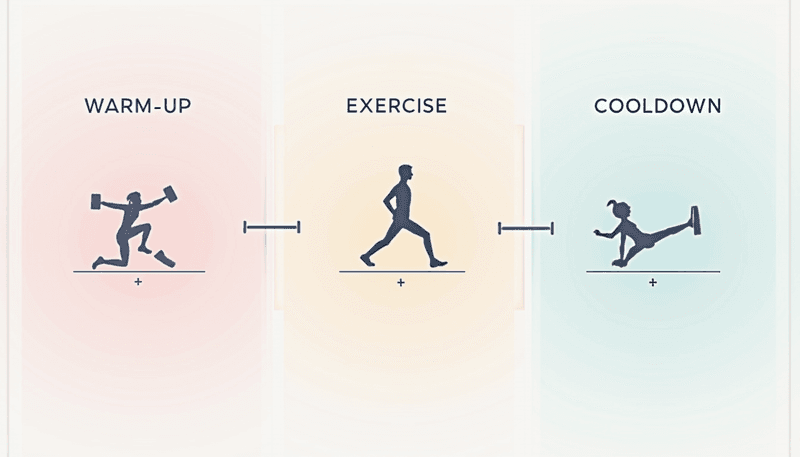Exercise Plus MitoQ Helps MS Patients

Living with Multiple Sclerosis (MS) often feels like navigating through unpredictable waters. As someone who has worked closely with MS patients through my health journalism career, I've witnessed the constant search for effective ways to manage symptoms and slow disease progression. A groundbreaking study from Kerman University of Medical Sciences brings hope with findings about the powerful combination of exercise and a supplement called MitoQ.
The Power of Combined Approach: Exercise Plus MitoQ
The research reveals something remarkable - when exercise and MitoQ supplementation are combined, they work better than either approach alone. Think of it like a symphony where each instrument plays beautifully solo, but together they create something magical. The study found this combination particularly effective in reducing inflammation and improving cellular health.
"Have you ever noticed how some wellness approaches work better when paired together, like meditation with yoga?"
For women living with MS, this means a practical, two-pronged approach:
- 30 minutes of moderate exercise (like stationary cycling) three times weekly
- Daily MitoQ supplement (20mg) taken on an empty stomach
Timing Matters: The Hormonal Connection
One fascinating aspect of the research shows that premenopausal women experienced more significant benefits from both interventions. This finding highlights the role of hormones in MS management.
Think of hormones like conductors in an orchestra - they help coordinate various bodily processes. During premenopause, when hormone levels are generally higher and more stable, the body may be better positioned to benefit from exercise and antioxidant supplements.
What this means for you:
- Track your symptoms alongside your menstrual cycle
- Consider discussing hormone testing with your healthcare provider
- Plan exercise sessions during times when you typically feel strongest
"How does your energy level change throughout your monthly cycle? Understanding these patterns can help you optimize your exercise timing."
Making Exercise Work for You
The study used a specific exercise protocol that's both effective and achievable. Here's how to implement it:
- Start with 5 minutes of gentle warm-up
- Maintain moderate intensity for 20 minutes
- Cool down for 5 minutes
Key points to remember:
- You don't need intense workouts - moderate exercise is effective
- Consistency matters more than intensity
- Listen to your body and adjust as needed
"What small step could you take today to begin incorporating more movement into your routine?"
The science behind this approach involves several biological markers, including interleukin-6 and transforming growth factor beta. In simple terms, exercise and MitoQ help reduce inflammation while supporting cellular health. It's like having both a cleanup crew and a repair team working together in your body.
Practical Implementation Tips
Based on the research findings, here's how to make these changes sustainable:
-
Start Small:
- Begin with 10-minute exercise sessions
- Gradually build up to 30 minutes
- Choose activities you enjoy
-
Track Your Progress:
- Keep a simple journal of exercise sessions
- Note energy levels and symptoms
- Record any changes you notice
-
Create Support Systems:
- Join online MS communities
- Share goals with family and friends
- Consider working with a physical therapist
The research showed that this combined approach helps reduce inflammation markers in the body. Think of inflammation like a slow-burning fire - these interventions help control the flames while supporting your body's natural healing processes.
In conclusion, this research offers hope and practical solutions for women with MS. The combination of regular, moderate exercise and MitoQ supplementation provides a natural approach to managing symptoms and potentially slowing disease progression.
What one change from this research could you implement in your life this week?
Remember to consult with your healthcare provider before starting any new exercise routine or supplement regimen, especially if you're living with MS. Your journey is unique, and these findings can be adapted to fit your individual needs and circumstances.
Take the first step today - whether it's a short walk, gentle stretching, or discussing MitoQ with your healthcare provider. Small, consistent actions can lead to meaningful improvements in your quality of life with MS.

Olivia Rose Chen-Martinez
Olivia Rose Chen-Martinez is a seasoned health and wellness writer with a focus on women’s health issues, including PCOS, perimenopause, and holistic wellness. With a background in Journalism and Public Health from UC Berkeley, Olivia draws on over 15 years of writing experience to deliver empathetic, research-backed insights. Her work blends personal anecdotes and actionable advice, resonating with readers seeking accessible and trustworthy information. Based in Austin, Texas, Olivia is also a certified yoga instructor and a dedicated advocate for balanced, integrative approaches to women’s health.







